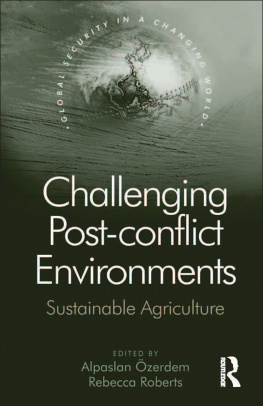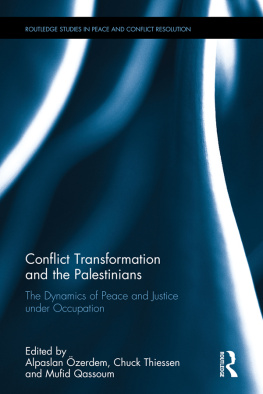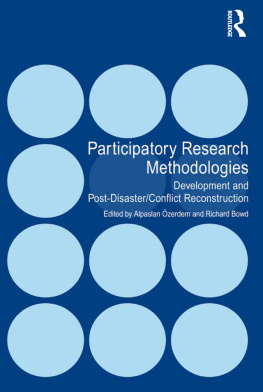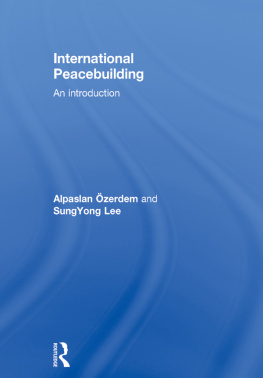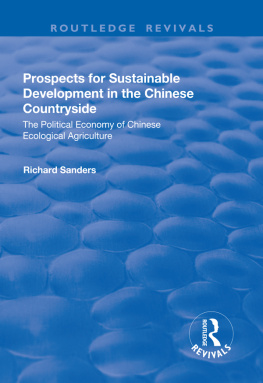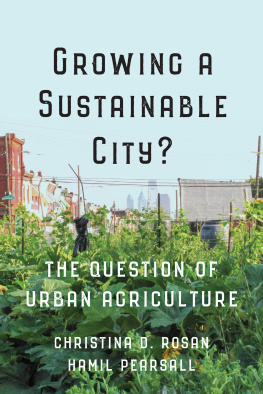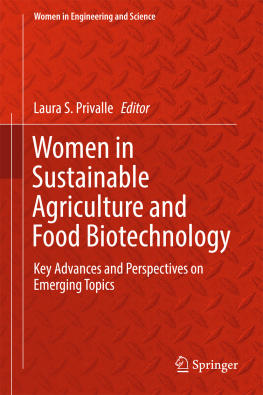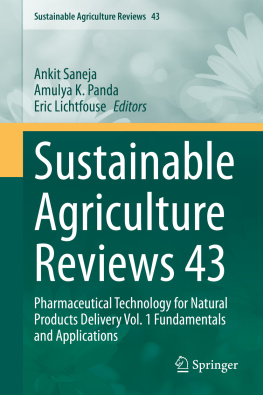CHALLENGING POST-CONFLICT ENVIRONMENTS
Global Security in a Changing World
Series Editor: Professor Nana K. Poku, John Ferguson Professor, Department of Peace Studies, University of Bradford, UK
Globalization is changing the world dramatically, and a very public debate is taking place about the form, extent and significance of these changes. At the centre of this debate lie conflicting claims about the forces and processes shaping security. As a result, notions of inequality, poverty and the cultural realm of identity politics have all surfaced alongside terrorism, environmental changes and bio-medical weapons as essential features of the contemporary global political landscape. In this sense, the debate on globalization calls for a fundamental shift from a status quo political reality to one that dislodges states as the primary referent, and instead sees states as a means and not the end to various security issues, ranging from individual security to international terrorism. More importantly, centred at the cognitive stage of thought, it is also a move towards conceiving the concept of insecurity in terms of change.
The series attempts to address this imbalance by encouraging a robust and multi-disciplinary assessment of the asymmetrical nature of globalization. Scholarship is sought from areas such as: global governance, poverty and insecurity, development, civil society, religion, terrorism and globalization.
Other titles in this series:
Post-conflict Disarmament, Demobilization and Reintegration
Bringing State-building Back In
Edited by Antonio Giustozzi
ISBN 9781409437383
Canadian Foreign Policy in Africa
Regional Approaches to Peace, Security, and Development
Edward Ansah Akuffo
ISBN 9781409434528
Victims as Security Threats
Refugee Impact on Host State Security in Africa
Edward Mogire
ISBN 9780754678205
Africas New Peace and Security Architecture
Promoting Norms, Institutionalizing Solutions
Edited by Ulf Engel and J. Gomes Porto
ISBN 9780754676058 (hbk)
ISBN 9780754676065 (pbk)
Challenging Post-conflict Environments
Sustainable Agriculture
Edited by
ALPASLAN ZERDEM
Centre for Peace and Reconciliation
Studies, Coventry University, UK
REBECCA ROBERTS
Centre for Peace and Reconciliation
Studies, Coventry University, UK
First published 2012 by Ashgate Publishing
Published 2016 by Routledge
2 Park Square, Milton Park, Abingdon, Oxon OX14 4RN
711 Third Avenue, New York, NY 10017, USA
Routledge is an imprint of the Taylor & Francis Group, an informa business
Copyright Alpaslan zerdem, Rebecca Roberts and the contributors 2012
Alpaslan zerdem and Rebecca Roberts have asserted their right under the Copyright, Designs and Patents Act, 1988, to be identified as the editors of this work.
All rights reserved. No part of this book may be reprinted or reproduced or utilised in any form or by any electronic, mechanical, or other means, now known or hereafter invented, including photocopying and recording, or in any information storage or retrieval system, without permission in writing from the publishers.
Notice:
Product or corporate names may be trademarks or registered trademarks, and are used only for identification and explanation without intent to infringe.
British Library Cataloguing in Publication Data
Challenging post-conflict environments : sustainable agriculture. (Global security in a changing world)
1. Postwar reconstruction Case studies. 2. Agriculture and state Case studies. 3. Sustainable agriculture Case studies. 4. War Environmental aspects. 5. War and society.
I. Series II. zerdem, Alpaslan. III. Roberts, Rebecca.
338.18dc23
Library of Congress Cataloging-in-Publication Data
Challenging post-conflict environments : sustainable agriculture / [edited] by Alpaslan zerdem, Rebecca Roberts.
p. cm. (Global security in a changing world)
Includes bibliographical references and index.
ISBN 9781409434825 (hbk. : alk. paper) ISBN 9781315571201 (ebook)
1. Sustainable agriculture Political aspects. 2. Sustainable agriculture Social aspects. 3. Sustainable agriculture Economic aspects. 4. Sustainable agriculture Developing countries. 5. Postwar reconstruction. 6. Peace-building. 7. Civil war. 8. Ethnic conflict. 9. War and society.
I. zerdem, Alpaslan. II. Roberts, Rebecca. III. Title: Sustainable agriculture.
S494.5.S86C44 2012
338.1dc23
2012013756
ISBN 9781409434825 (hbk)
ISBN 9781315571201 (ebk-ePDF)
ISBN 9781317168720 (ebk-ePUB)
Contents
Moya Kneafsey
Alpaslan zerdem and Rebecca Roberts
Phil Harris and Alpaslan zerdem
Kwadwo Asenso-Okyere and Sindu Workneh Kebede
Gobinda Neupane and Richard Slade
Rebecca Roberts
Sylvia Stoll
Julia Wright and Lionel Weerakoon
James Bennett
Sigfrido Burgos Cceres and Sophal Ear
Bruce A. Scholten and Brian T. Dugdill
Lenard Milich
Marwan Darweish
Liam Morgan and Barnaby Peacocke
Ian Christoplos
Roy Maconachie
Catherine Bolten
Rebecca Roberts and Julia Wright
List of Figures
List of Tables
List of Contributors
Kwadwo Asenso-Okyere is a director and member of the senior management team of the International Food Policy Research Institute (IFPRI). He holds a BSc (Honours) degree from the University of Ghana, MSc from the University of Guelph, Canada, and PhD from the University of MissouriColumbia, USA. Before joining IFPRI he was professor and vice-chancellor of the University of Ghana and previously director of the Institute of Statistical, Social and Economic Research (ISSER) of the university. He has also worked at the World Bank, Ghana Ministry of Food and Agriculture and Ghana Cocoa Board, and served on national and international boards. He has conducted research on economic and social development and published widely. He is a fellow of the Ghana Academy of Arts and Sciences, fellow of the Association of Certified Entrepreneurs, and member of the New York Academy of Sciences.
James Bennett holds a BSc in Biological Sciences and an MSc in Ecology from the University of Warwick. He undertook his doctoral studies at Coventry University, researching small-scale cattle production systems in communal areas of Eastern Cape Province, South Africa. Since completing his PhD, he has lectured in Environmental Science at Coventry University and continued to undertake research in Eastern Cape on the management of communally held rangelands and arable land allocations as common property systems. More recently his research has focused on the sustainability of current grazing practices on former commercial farmland that has been transferred to communal ownership.
Catherine Bolten is Assistant Professor of Anthropology and Peace Studies at the University of Notre Dame. She has consulted for the United Nations World Food Programme and Physicians for Social Responsibility. Dr Bolten has conducted fieldwork in Botswana, Swaziland, Lesotho and Sierra Leone, the latter since 2003. Dr Bolten has published articles in

